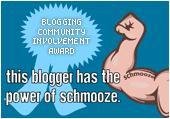
"...Yale researchers point out that it may not be anger alone that heightens the risk of death from heart disease, but rather intense negative emotionality of any kind that regularly sends surges of stress hormones through the body. But overalll, the strongest scientific links between emotions and heart disease are to anger: a Harvard Medical School study asked more than fifteen hundred men and women who had suffered heart attacks to describe their emotional state in the hours before the attack. Being angry more than doubled the risk of cardiac arrest in people who already had heart disease; the heightened risk lasted for about two hours after the anger was aroused.
These findings do not mean that people should try to suppress anger when it is appropriate. Indeed, there is evidence that trying to completely suppress such feelings in the heat of the moment actually results in magnifying the body's agitation and may raise blood pressure. On the other hand, as we saw in Chapter 5, the net effect of ventilating anger every time it is felt is simply to feed it, making it a more likely response to any annoying situation. {Dr. Redford}Williams {at Duke University} resolves this paradox by concluding that whether anger is expressed or not is less important than whether it is chronic. An occasional disply of hostility is not dangerous to health; the problem arises when hostility becomes so constant as to define an antagonistic personal style -- one marked by repeated feelings of mistrust and cynicism and the propensity to snide comments and put-downs, as well as more obvious bouts of temper and rage. [my highlighting]
The hopeful news is that chronic anger need not be a death sentence: hostility is a habit that can change. One group of heart-attack patients at Stanford University Medical School was enrolled in a program designed to help them soften the attitudes that gave them a short temper. This anger-control training resulted in a second-heart-attack rate 44 percent lower than for those who had not tried to change their hostility. A program designed by Williams has had similar beneficial results. Like the Stanford program, it teaches basic elements of emotional intelligence, particularly mindfulness of anger as it begins to stir, the ability to regulate it once it has begun, and empathy. Patients are asked to jot down cynical or hostile thoughts as they notice them. If the thoughts persist, they try to short-circuit them by saying (or thinking), "Stop!" And they are encouraged to purposely substitute reasonable thoughts for cynical, mistrustful ones during trying situations -- for instance, if an elevator is delayed, to search for a benign reason rather than harbour anger against some imagined thoughtless person who may be responsible for the delay. For frustrating encunters, they learn the ability to see things from the other person's perspective -- empathy is a balm for anger.
As Williams told me, 'The antidote to hostility is to develop a more trusting heart. All it takes is the right motivation. When people see that their hostility can lead to an early grave, they are ready to try.' "
pages 171 - 172, Chapter 11 Mind and Medicine, "Emotional Intelligence" by Daniel Goleman






No comments:
Post a Comment